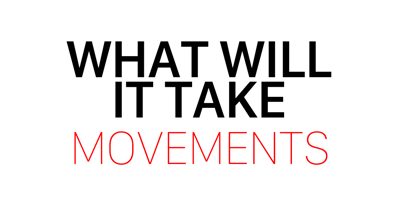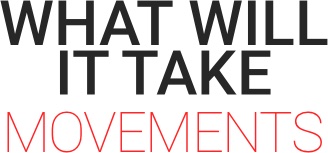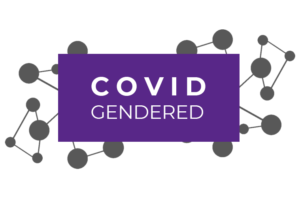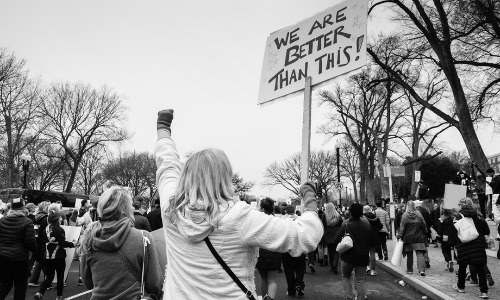By Marianne Schnall
As men and women experience different impacts of the pandemic in the workplace and at home, now is our chance to take action toward long-term gender and racial equity
Among the many concerning societal, economic and health impacts of COVID-19, the pandemic has also caused an unprecedented upheaval at work and at home for companies and employees across the country. All this has happened in a vacuum of official guidance or leadership. As a result, corporations’ and organizations’ responses to the global pandemic are varied and unpredictable. Some are acknowledging the challenges, and seeking to help employees meet them, and others are demanding business as usual with no room for evolving mental health, family and childcare dynamics. Across the country we are witnessing a dire increase in anxiety and depression, much of it related to the stress from working at home combined with a range of new additional challenges, particularly for working parents, many of whom are now burdened with childcare and overseeing their child’s online learning. This is all further complicated by the fact that different communities are impacted differently, across gender differences, and additional factors that specifically impact people of color. There is an urgent need for companies to look at these issues through an intersectional gender lens and proactively make immediate changes to better serve their employees across the spectrum.
For men, the stresses they are now under are complicated by the reality that men are taught by our culture not to admit weakness or talk about their emotions. A Call to Men, experts on the collective socialization of manhood and its relationship to gender-based violence and discrimination, have been working to shed light on the male experience during the pandemic and these turbulent times. Tony Porter, CEO of A Call to Men, explains, “Male socialization is playing a major role in how men are experiencing the global pandemic and the ongoing racial unrest. Men are really struggling. Those of us who identify as men have received countless messages all of our lives—overt and subtle—that being a man means ‘being in control. We’ve been socialized to avoid showing vulnerability at all costs, never to ask for help and to devalue the voices of women.” He adds, “These ‘Man Box’ traits are dangerous all the time—they have serious mental health implications—and they’re even worse right now during a time when we are faced with so much suffering and chaos.”
The research backs that up: More than 40% of men don’t go to the doctor at all unless they have a serious health issue, and when they do go to the doctor, men are less likely to be honest with their doctor about their health history and current symptoms. Over 6 million men suffer from depression each year, but male depression often goes undiagnosed. Porter says that stereotypical gender roles ingrained in our culture are largely to blame: “Men are socialized not to ask for, offer or accept help, that doing so is a sign of weakness. We socialize our girls to value communication and sharing. But our boys are often taught to shun their feelings and reject their fears. That is really dangerous in a time like this.”
Porter says we need to look for opportunities to help normalize mental health issues for male-identified people that would benefit themselves and the people in their lives, including their partners, children and co-workers. “I’m going out of my way to ask the boys and young men in my life how they are feeling. And don’t accept ‘I’m good’ as their answer. They may actually be good, but take an extra step and find out what is making them feel good that day.”
Women are also feeling stressed, overburdened and facing conditions that are beginning to force them to drop out of the workforce at an alarming rate. According to a Women in the Workplace report that Lean In and consulting firm McKinsey & Company released last week, which is the largest study of the state of women in corporate America, researchers warned that companies are at risk of losing up to 2 million women—a concerning trend that is already starting to occur according to the Labor Department’s latest report showing that 865,000 women left the workforce in September alone. This exodus threatens to erase all the gains women have made in management and senior leadership roles since the survey began six years ago.
The reasons behind this disturbing trend, which the study illuminates, are understandable: as we know, working mothers were already pulling a double shift of work and caregiving before COVID, and now the pandemic has made balancing work and home even more challenging. The study found that mothers are more likely than fathers to be spending an extra 20 hours a week on housework and childcare.
Says Sheryl Sandberg, COO of Facebook and cofounder of Lean In about the report, “I think we should be very alarmed. I wrote a Wall Street Journal op-ed, and I wrote, ‘If I had an alarm bell, I would be pulling it,’ and I’m pulling it. I mean, we kind of suspected this was going on. I think a lot of people thought, ‘Oh, maybe this is happening,’ but it is happening. More than one in four women, including a lot of senior women, are saying they’re considering downsizing their jobs or leaving the workforce. That’s a disaster; that threatens to undo literally what has taken us years of progress for women in the workplace. We absolutely need to fix this and need to fix this immediately.” She adds, “This report shows that for the average couple, for a man and a woman, often the woman is doing 20 more hours of childcare and housework than she was before the pandemic. Twenty hours a week—that’s half a full-time job! And that shows the burnout women are facing. We are threatened right now with losing our senior women and we’re threatened with losing the pipeline. And again, we know diversity works; we know companies that are more diverse have better performance—and that is what is at stake here.”
Sandberg emphasizes that she hopes the report will serve as a wake up call and a call to action for companies to better support their employees: “The good thing about this report is it is the alarm bell before people—I mean, some have certainly left and downsized and left—but before more do. We’re hoping people recognize that we’re not just having a pandemic of a health crisis or an economic crisis—we are having a crisis for women, and particularly women of color, in the workforce, and we need to make the changes right now before it’s too late.”
Another impact of the pandemic is that it may be causing a shift in gender roles. With so many people still working from home, and schools requiring remote learning, parents are becoming full-time caregivers, employees, teachers, counselors, and more—something that women were accustomed to but may be new for men to witness and participate in. Porter sees this as an opportunity in the midst of the struggle and an increased focus on “invisible work”—all of the responsibilities required to keep a home and family running smoothly. Invisible work is time-intensive but not highly valued, and mothers have done the majority of it. Porter says, “This moment has forced fathers to see more of that invisible work, and because of sheer stress on the system, take part in it. Our hope is that exposure leads to more appreciation and a more equitable distribution of that labor. But we aren’t just hoping; we are intentionally talking to men about these issues. Healthy manhood is about equity and equality in society and in our families.”
In addition to the importance of looking at these issues through a gender lens, Porter also emphasizes that, “Race is playing a major role in what we are seeing right now.” The Centers for Disease Control released national data confirming what many of us already knew: Black people are disproportionately impacted by the coronavirus. More than half of coronavirus deaths in the U.S. have been in communities with a disproportionate number of Black residents and Black people in the U.K. are four times more likely to die than whites, with the reality that structural racism is to blame. Black people are more likely to have underlying conditions, more likely to get sick, and Black people are treated differently when they do receive health care, given less medical intervention and poorer-quality care. Racism also results in Black people having limited economic opportunity, being exposed to environmental hazards, and being more likely to have jobs that don’t allow them to work from home (less than 1 in 5 Black people can work from home) during this pandemic.
Black women specifically may face additional challenges: prior to the pandemic, they already experienced more barriers than most other groups of employees, as detailed in Lean In’s study, The State of Black Women in Corporate America. According to their new study on Women in the Workplace, Black women are also now coping with the disproportionate impact of COVID-19 on Black communities and the emotional toll of heightened focus on racial violence. And for many, work is not a supportive place: Black women get less support from managers, are less likely to have strong allies in the workplace and are more likely to feel like they can’t bring their whole selves to work. There’s a lot to do,” says Sandberg. “I think companies have to explicitly address it. Managers have to explicitly address it. We have to adjust performance criteria. We have to make sure people can take the leave… to take care of themselves, a child, a sick relative. We need to address issues people are facing. For Black women and people of color, they’re experiencing this horrific violence that’s been happening in our country, and then they go to work and no one even mentions it or asks them about it. We need to help people bring their whole self to work and help companies address this, so that people can thrive in the workforce, and we’re not doing it.”
Companies like Harry’s and Publicis Sapient are stepping in to innovate and set a new standard for employee mental health care during this crisis. Maggie Hureau, Harry’s Head of Social Impact, explains, “Since the pandemic began, we’ve worked with our partner organizations to ensure that we’re providing our employees with the benefits and programs they need to take care of their mental health. We provided full-time employees with paid mental health days during the spring and summer, and gave the company the full week leading up to Labor Day as paid time off. We’re also providing two weeks off at the end of the year, so everyone has a chance to reset and start 2021 off recharged. While these practices aren’t ‘normal,’ neither are the times we’re currently living through, and it’s important to us that we acknowledge that as a company to ensure that our employees have time to reset, relax and take care of themselves.”
Geraldine White, NA Diversity & Inclusion Lead for Publicis Sapient, says, “Today, organizations must also focus on the daily experiences of talent in relation to their psychological safety, anxiety, grief, stress, isolation, depression, trauma and loss. Managers must be simultaneously conscious of the implications of their own internal struggles while having the empathy and discernment to be mindful of emotions and feelings can be daunting and stressful on its own. Given the implications on mental health, there is rightfully increased focus on how companies raise awareness, fight stigma and prioritize well-being. To begin to meet these needs for all talent, we have a global Business Resource Group dedicated to mental health and well-being.”
Harry’s is also setting a new standard in terms of offering solutions and policies that are intersectional in nature, looking at what mental health looks like for the Black, Indigenous and people of color (BIPOC) in their corporation and through their social impact programs. Says Hureau, “Between the pandemic, the related economic downturn and the pain being widely brought to light by the Black Lives Matter movement, we are living through true times of crisis. At Harry’s we realize that with so many unknowns, it’s imperative that we support our team on a deeper level when it comes to mental health. Internally, we’re providing free therapy sessions to our team through the end of the year, and have partnered with a culturally competent mental health care organization, Alma, to do so.” She adds, “We know that it’s important to be able to see yourself in your therapist, and with Alma’s diverse network of professionals, we feel good about the benefits we’re providing to our whole team.”
Harry’s is also providing support through its philanthropic efforts. “Externally, we knew we could make a greater difference within the Black community, but to make a true impact, we couldn’t just send donations to organizations we’ve never spoken to before. So, we chatted with our existing partners and credible individuals in the space, and made a commitment to donate $500,000 in the US and £50,000 in the UK to organizations supporting mental health access for Black communities, with plans to partner with impactful organizations serving these communities long term.”
Hureau already sees many benefits and results from their overall efforts. “What we can track shows us that our team, and leadership in particular, have become increasingly more comfortable talking about their own mental health, and being open and honest about things they’re struggling with, or that are affecting them personally.”
White added, “As women continue to predominantly be primary caregivers or default parents, men are also adversely impacted by the implications of social stigmas discouraging the vulnerability or boundary-setting required to cope through these same stresses. In a recent panel on fatherhood during the pandemic, a diverse group of fathers shared their experiences working from home with shared parenting duties and limited support.”
Harry’s is taking proactive measures to address the ways that gender-based home issues are showing up at work. Hureau shares, “Founded by two very engaged dads, Harry’s has worked over the years to find ways to better support working parents, and it has become an even bigger priority for the company during these unpredictable times. We know that being a parent right now is extremely tough and many are feeling the struggles of this new work environment even more acutely.” She adds, “To help mitigate some of the challenges that we know moms and dads are facing, we’ve partnered with a company called Maven to support parents and parents-to-be. Maven provides personalized content, virtual care resources and one-to-one guidance from experts to help parents navigate through the wide range of demands they’re facing.”
Hureau believes the pandemic has allowed us to pursue a more equitable experience at home and at work which will have transformative benefits personally, professionally and culturally. She says, “I think the crisis has made us more empathetic as individuals and as a company across the board, and the empathy that we feel is helping us understand how to best care for our employees during this time and in the future.”
Observing that some of their team members are thriving in a remote environment, and that for others it’s a real struggle, Hureau says they are also actively thinking about how they can provide more flexibility to their team in the long term: “Through the work that we’re doing internally, I’m hopeful and confident that from here on out, we can find ways to provide more flexibility so members of our team can decide which ways of working are best for them.“
It is encouraging to see that despite the different challenges we are facing in these unprecedented times, some companies are rising to the occasion, and hopefully more companies will follow their lead. As Sandberg put it, “This moment can also be an opportunity. Making work sustainable, diverse, supportive and inclusive isn’t just a way to help employees get through this crisis—it’s the foundation for a better workplace after COVID-19 is over.”
For more information, visit A Call to Men and Lean In’s Women in the Workplace report.
This piece was originally published at ForbesWomen.
 This story was produced in partnership with the International Women’s Media Foundation.
This story was produced in partnership with the International Women’s Media Foundation.
Visit COVID Gendered for more articles, information and resources.
Marianne Schnall is a widely-published interviewer and journalist and author of What Will It Take to Make a Woman President?, Leading the Way, and Dare to Be You. She is also the founder of Feminist.com and What Will It Take Movements.



